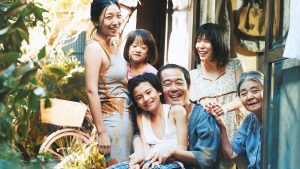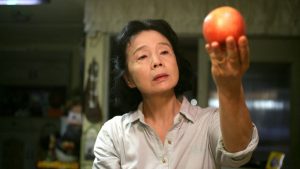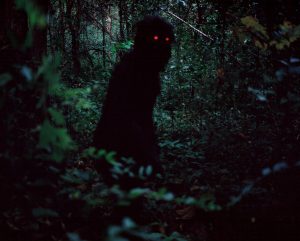Selected highlights from a decade of gems
The 2010s were undoubtedly an interesting time for cinema. The decade saw the rise of superhero movies and shared universes, the popularization of streaming services, the standardization of digital de-ageing, innumerable sequels, and even reboots and remakes that no one asked for. Still, the last 10 years gave us some incredible, wholly original and unique films that are absolutely worth your time.
Here are just five of them.

By the time the credits roll at the end of Paweł Pawlikowski’s period drama Cold War, you cannot help but be overcome by an astounding sense of melancholy and emptiness. Pawlikowski’s film is bleak and despondent, allowing its viewers very little in terms of consolation or assurance; but it is that very same bleakness that lies at the essence of Cold War’s efficacy.
The film tells the story of an ill-fated relationship between a male musical director and a young female singer. Beginning in post-World War II Poland, the film bounces between several time periods and settings, and follows the couple as they are repeatedly separated but ultimately brought together again under different circumstances. Cold War boasts a beautiful black and white visual aesthetic that accentuates the coldness of the film and the detachment of its characters.

“What makes a family?”: a question Japanese director Hirokazu Kore-eda sought to answer in his 2018 film Shoplifters. Time and time again, Hirokazu has proven himself a master of the modern familial drama, crafting thoughtful, contemplative films that assess the intricacies of family life. The 2018 Palme D’Or winner follows a group of shoplifters that steal a young girl from a broken home, “adopting” her into their household. Despite not being biologically related, the characters are kept afloat by an intimate bond that fastens them together as a family.
Hirokazu’s leisurely-paced film examines familial relationships and dynamics, stressing the importance of having people to care for and depend upon. Although the situations presented in the film are likely far removed from the realities of its viewers, Shoplifters still somehow manages to carry an indescribable familiarity with it. The moments when the family members are idly lying about, spending a day at the beach or stepping outside to catch a glimpse of nearby fireworks, each tap into a certain universality that recalls distant memories.

Director Abbas Kiarostami’s first film outside of Iran is arguably one of his best. William Shimell plays an author that meets an antiques dealer on a trip to Tuscany. At first glance, what seems to be a romantic comedy turns out to be anything but, as the film slowly reveals itself as something richer and more complex than initially anticipated.
The film opens with Shimell’s character, James, holding a press conference to discuss his latest book in which he examines the worth of an original piece of art compared to a replication. This opening scene sets the stage for themes and ideas that Certified Copy will spend the remainder of the film exploring: the fluidity of identity and the value of truth.
A remarkable shift occurs midway through the film, in which the man and the woman who we had believed to have just met, begin acting as though they are on the last legs on a lengthy marriage. From that point on, things begin to get even more intricate and strange, and details become increasingly obscure and unverifiable. Juliette Binoche’s character switches seamlessly from French to Italian and then to English, and it has us questioning the validity behind everything we’ve been told thus far. What, then, happens to truth? To meaning? How do we know if something is authentic or not? Certified Copy will leave you wondering.

Like the aforementioned Cold War, Poetry is a difficult watch. South Korean filmmaker Lee Chang-dong’s heartbreaking film tells the story of a woman in her sixties, Mi Ja, trying to cope with an inundation of life altering news. Recently diagnosed with Alzheimer’s and informed that her grandson was involved in a horrible crime, Mi Ja meanders through her days disconnected and adrift. It is not until she enrolls in a poetry class that she begins to find meaning and purpose in her life.
The performance of lead actress Yoon Jeong-hee is understated yet captivating, with tiny gestures and expressions conveying the ways in which she is quietly aching. Chang-dong’s Poetry is a consistently gut-wrenching film that examines personal struggles and suffering and how we choose to deal with our circumstances.

Upon first viewing, Uncle Boonmee may seem like a hard film to crack. But perhaps director Apitchatpong Weerasethakul intended it to be that way. In a 2010 interview, Weerasethakul told The Guardian: “Sometimes you don’t need to understand everything to appreciate a certain beauty. And I think the film operates in the same way.”
Weerasethakul’s ethereal, dreamlike film follows the last days of the titular Boonmee, a dying man who is visited by the ghost of his deceased wife and an apparition of his long-lost son in a non-human form. At the same time, Boonmee is having hallucinatory visions of previous lives he may have lived. These glimpses are sudden and without explanation and there is little to explicitly connect them to Boonmee. But much like real-life instances of déjà vu, sporadic memory flashes, or concepts of afterlife or reincarnation, the film’s vignettes defy any sort of logic or explanation. It eludes us because we, too, do not have the answers.
The film perhaps raises more questions than it resolves, but its non-linear, almost stream of consciousness-like presentation will envelop you in a trance and leave you hypnotized.




